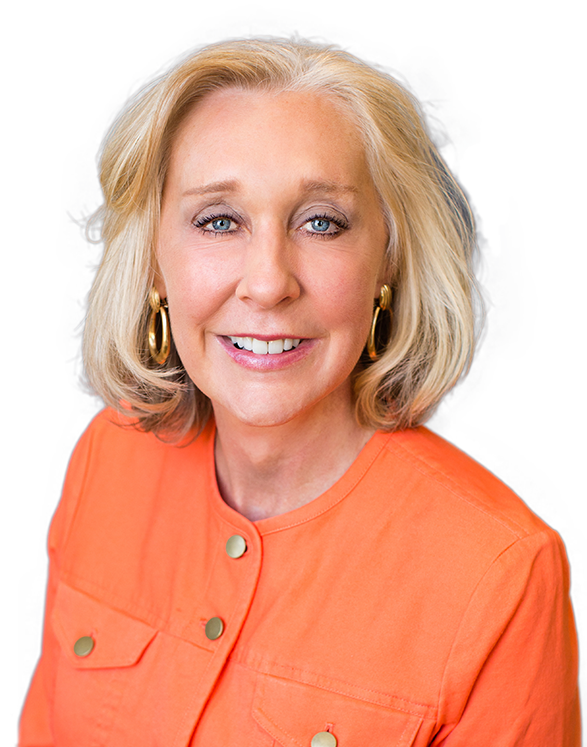Ask Denise
Why did you write this book?
During the past twelve-or-so years of my training career, I’ve been working with a lot of young people—in high schools, colleges, and youth organizations. I teach things like job and internship interviewing skills, how to become a better communicator, how to be more assertive, career readiness, and similar topics. And often my students come up to me after my classes and ask for a book or resource recommendation, so that they can continue with their learning. I wrote Work it! because I couldn’t find a resource out there that I could really recommend, one that seemed comprehensive enough, and yet easy to read. So I took it upon myself to write a book that covers everything from charting your professional course, to interviewing skills, to workplace etiquette, to basic supervision, to moving on gracefully if you need to make a change. A book that’s more all-inclusive than any I’ve seen. Also, one that’s practical and sensible, rather than theoretical. I hope I’ve accomplished my goals and that young professionals everywhere will enjoy the book!
What are some things we can do to help our children succeed in finding a career job?
First of all, it’s important to be supportive and patient, and to allow your young adult children to figure it out for themselves. I know that’s difficult, but it’s the most helpful thing you can do—unless, of course, they’re actually asking for your advice, in which case, do your best to offer guidance. Finding one’s place in the world—I mean really finding what turns you on and makes you feel fulfilled—can take some time, and most young people need to do some exploring before they hit upon what excites and motivates them. I’ve seen it a thousand times: well-meaning people (parents, aunts and uncles, even neighbors) jump right in and start making suggestions. Apply here. Go there. Do this. Don’t do that. This can be confusing to young people, and can actually delay their success, because now they’re busy trying to please everyone, and not necessarily paying attention to what their own hearts and minds are telling them.
Having said all that, if you’re lucky enough for your young adult child to ask your opinion, you’re perfectly positioned to help! You, probably more than anyone else they know, have amazingly accurate insights into what makes them tick. You were there when your daughter lit up at seeing the Milky Way for the first time. You saw your son’s “joy dance” at the thought of taking swimming lessons. In other words, you’ve witnessed their passions, firsthand, and there’s nothing wrong with pointing out your observations. You just might prompt them to pursue their dreams and find their ideal career jobs.
What do you think are the most important traits a person needs to have if he/she’s going to be successful in the workplace?
Of course, depending on what you do for a living, there may be some very important traits that are specific to your line of work, such as having a great bedside manner if you’re in healthcare, or being an excellent driver if you’re in the transportation business. But generally speaking, companies and employers of all types are looking for dependability—doing what you say you’re going to do, and doing it thoroughly, accurately, and on time. Showing up for work. Staying through your entire shift. Producing a quality work product, whether that’s a perfect financial report, a well-designed graphic, or a killer loaf of bread. And, by the way, according to study after study, dependability is also one of the top traits to get you promoted!
Can you give us some quick tips for how to sound more powerful and self-assured when we speak?
First of all, no matter whether you’re a man or a woman, it’s important to use the lower registers of your voice. Almost anyone can benefit from this tip—even people who are in professional speaking positions. When you “go high,” as in that voice you use when you’re excited or surprised, you lose all your power. You don’t sound as if you’re in control. I like to encourage people to study newscasters. They’re beautifully trained to “stay low.” If you think about it, you never hear a newscaster screech out a story, even if it’s an exciting one. They sound powerful, knowledgeable, and self-assured. Use them as models.
Second, do your best to eliminate what are called “fillers,” or “verbal crutches.” They’re the sounds or words you use when you’re thinking about what to say, such as “umm,” “uhh,” “ya know,” and “okaaay.” Everyone needs to stop and think now and then, but you’ll sound far more powerful if you simply allow yourself to be silent for a quick moment, think of what you want to say, and then continue speaking.
And third, speak in paragraphs. In other words, break your entire message into smaller parts, and then deliver them, one at a time, pausing between the parts, allowing others to respond, and then continuing. It’s very exhausting for your listeners to hear one run-on thought after another, delivered without a break, and in random order. Plus, it makes you sound muddled and unprepared. Do your listeners a favor and organize your thoughts before you speak—you’ll sound far more powerful and in control.
What are some tips you recommend for acing a job interview?
First, and probably most important: build rapport with your interviewer! All studies confirm this. It’s basically like any other relationship. If your interviewer actually likes you, you’re much more likely to get the job. So how do you build rapport? One of the most effective ways is through positive, direct eye contact. So practice making great eye contact with your friends, your mom, your significant other, or whoever’s available before you go on that next interview. And don’t forget to smile, too. Smiling also establishes rapport.
Second: do your homework. Come to the interview knowing everything there is to know about the company or organization you’re applying to. Look over the job description you’re responding to, and memorize what they’re looking for. Know your resume backwards and forwards. Know what questions you’re going to ask the interviewer. Be completely prepared. Interviewers are always impressed by people who know their stuff. Conversely, want to kill an interview before it’s even begun? Just ask, “So what’s this job that I’m applying for, again?” (I’ve actually heard that one in an interview I was conducting!)
What’s the current appropriate “look” for going on an interview?
Well, that definitely depends on what sort of interview you’re going on. Let’s say, for instance, you’re interviewing at Apple. I happen to have several former students who work there, and I can tell you it’s much more “relaxed” than if you were interviewing at Deloitte (one of the major accounting firms)—and both Apple and Deloitte would be way different than if you were interviewing at the hippest hair salon in West Hollywood. However, there are still some rules to abide by. For starters, always dress for an interview in something that’s slightly more formal than you would wear if you already had the job. “Slightly” is key here—you don’t want to appear too formal or stuffy, and you certainly don’t want to outdress the interviewer! If possible, check out what other workers are wearing (there’s nothing wrong with driving through the parking lot, as long as you don’t look like a stalker!), and it’s also perfectly acceptable to call the HR department and actually ask them about appropriate interview attire. They’ll be happy to tell you, and they’ll be impressed that you cared enough to ask. In general, make sure your “look” is neat, clean, and unwrinkled, and that your personal hygiene (hair, fingernails, etc.) make you look professional and job-worthy.
Click on the below links to view videos from Denise
See Denise demonstrate the proper handshake
How Denise came up with the book title and cover
Work It! is about more than just getting a job
Some of the topics covered in Work it!
Cal Poly Freshman Class Address (Intro)
Cal Poly Freshman Class Address (Wrap-up)
International Career Conference, Phoenix, AZ (Intro)
International Career Conference, Phoenix AZ (Discussing ‘Passion’)
Click on images below to download


Denise in the news
Featured on Arizona Daily Mix (AZDM) June 2017, Denise talks about making the best professional first impression and giving a proper handshake
Denise as a guest on KTLA Channel 5 Los Angeles morning news, “How to Handshake like a Pro”
Denise featured on Kansas City Live discussing her book and the importance of a great handshake
Read Denise’s article in the San Francisco Chronicle providing rules for the perfect handshake
Denise featured on AZ Business Magazine, with 10 steps to help you avoid the Trump handshake
Denise is featured on Teach a CEO – CBNation Community Blog: 32 Business Tips & Lessons from the Entrepreneur’s Bookshelf
Check out Denise’s article on NeonNotebook.com, on Tips for Starting your First Job
Read Denise’s post on commpro.biz, on Five Essential Tips for New Graduates
